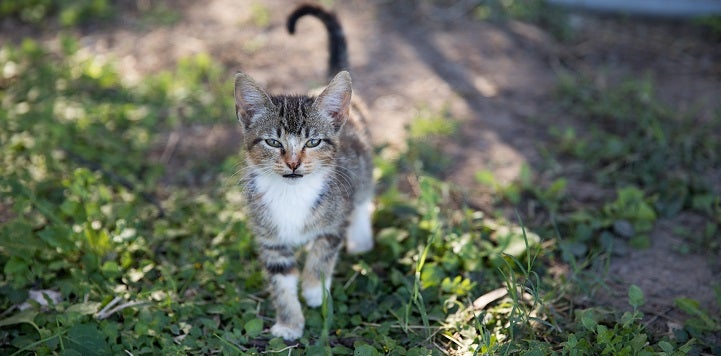
Southeast Region Grant Priorities
In the Southeast Region, we are looking at competitive proposals that demonstrate, with data, a direct impact on saving animals’ lives and/or lead to a reduction in the number of cats and dogs killed in shelters. Proposals without shelter data will not be considered. Priority consideration will be given to projects focused on helping in those areas where animals are most at risk. Refer to the pet lifesaving dashboard to see where the greatest opportunities for lifesaving are in your community or try our Gap Analysis Tool to see the largest area of need within your own shelter.
If you are supporting a local shelter in your proposal, application collaboration (including partnership letters of support) is strongly encouraged. Past successful proposals have an average $80-100 cost per animal impacted (oftentimes, as a partial grant for the work) and have been able to showcase, through data, how the project will directly decrease the number of dogs or cats killed in the selected shelter(s).
The priorities for the Rachael Ray Save Them All grants are:
- Programs that provide targeted TNR (Trap-Neuter-Return) in lieu of impounding healthy, outdoor cats or that return impounded cats to their outdoor homes after they have been sterilized and vaccinated (Shelter-Neuter-Return). TNR programs should be data driven and thoughtfully targeted in areas of greatest impact, such as focused on zip codes where the highest number of cat related calls to animal control originate.
- Intake diversion or finder-to-foster programs, especially those aimed at vulnerable populations such as neonatal kittens.
- Programs which significantly increase live outcomes for at-risk animals; such as foster or behavior programs that target large dogs, promotions to move long stay animals out of the shelter, improve live outcomes for medically fragile animals (such as heartworm or parvo positive dogs, kittens with panleuk, or animals with ringworm) or find positive outcomes through transport.
- Increase community capacity to care for pets, thereby reducing shelter intake. Programs may include return-in-field for found pets, targeted trap-neuter-return, or diverted/managed intake. Projects must directly support animals likely to enter the shelter system because of current practices and be supported by historical data.
- Initiatives which address underserved populations, especially in communities with a high concentration of residents who do not speak English or are otherwise currently unable to engage with the shelter.
Examples of previously funded Save Them All projects:
- In lieu of intake a private group did focused spay/neuter for at least 250 cats from highest shelter intake zip code xxxxx to reduce preventable cat euthanasia at shelter. Funding covered costs of surgery & treatment at time of medical procedure
- A rescue group provided pre-built “kitten kits” to multiple area animal welfare agencies to use as neonatal kitten intake intervention tools, both in shelter and in the field.
- A municipal shelter created a rescue partner incentive program, using funding provided to give rescue organizations and partner shelters stipends to pull 250 at-risk animals from their organization and reduce unnecessary euthanasia.
- A private shelter was given funding to support staff and consumable supplies for their mobile spay & neuter bus to go into the highest priority government shelter in their state and perform 250 sterilization surgeries for adoption or rescue eligible cats.
- A rescue group committed to facilitate large dog specific transports in at a priority area municipal animal services agency. Grant funds went towards costs associated with the transport and medical preparations.
Want to chat with the Southeast regional team about your proposal?
- For Georgia and South Carolina, click here to schedule with Gina Burrows
- For Alabama, Tennessee, and Mississippi, click here to schedule with Lisa Barrett
- For Florida, click here to schedule with Aurora Velazquez